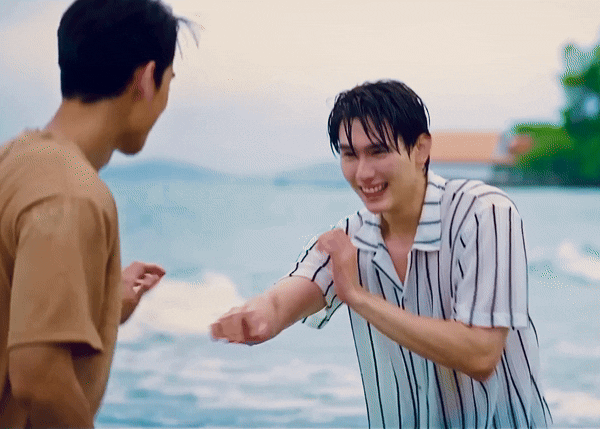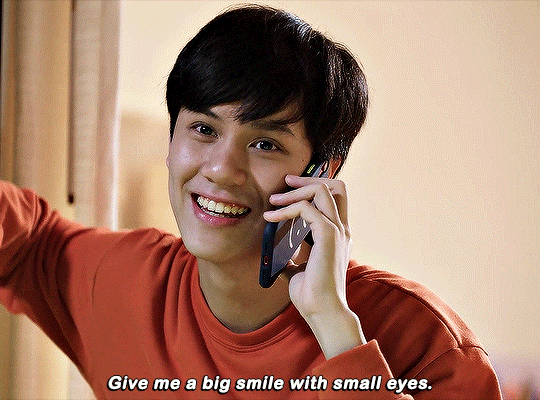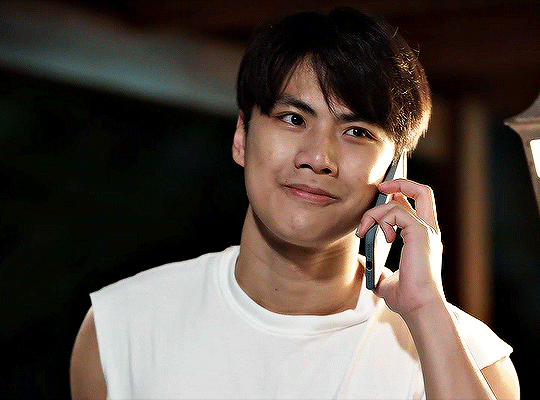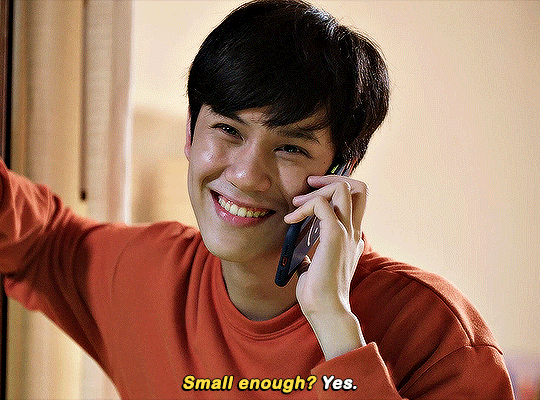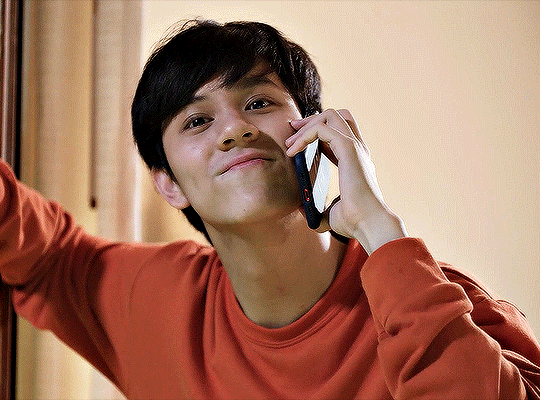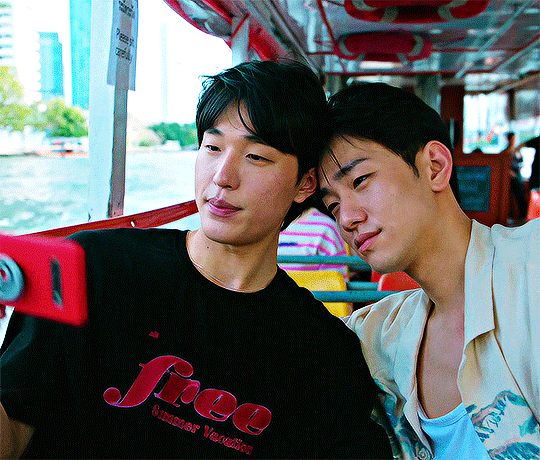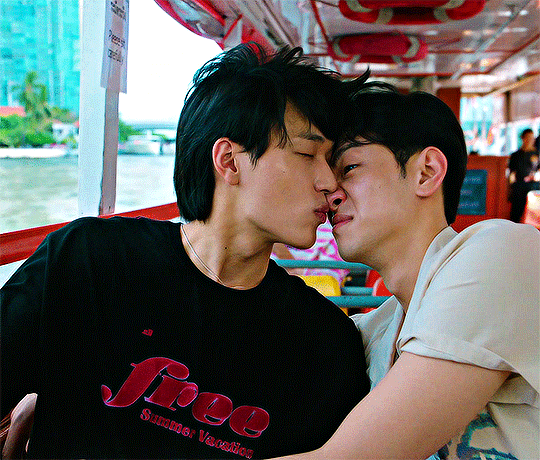Text
It's about how Minase and Hirukawa each assume that the other moved on without them, that both of them are writing letters no one will read, remembering a past that is over for the other but never for them. That Minase is drowning while Hirukawa buries himself in work and how their friends wonder how lonely they are but they both know they'd never move on and how Minase started smoking and drinks himself into stupors over the other's love lives while Hirukawa quit smoking because his goal was always to get better because he's sure he needs to be better for Minase not knowing how loved he always was by the broken boy who can't speak his feelings and how Minase still can't get a word out because he freezes in the face of Hirukawa and again and again and each time Hirukawa ends up chasing him down because Hirukawa was the one who left at the playground but Minase knows he was the one who let him go.
142 notes
·
View notes
Text
TOP BLS OF 2024
Starting with:

Last Twilight Released last year and ended this year. Enjoyed it all the way through Overall Rating: 8.5/10
Continuing on with:

Love for Love’s Sake One of the most wholesome while also exploring some dark themes Overall Rating: 8.5/10

4 Minutes Was very confusing but enjoyable Overall Rating: 8.5/10

Jack & Joker: U Steal My Heart Had some really pretty scenes (example above) Overall Rating: 8.5/10

Let Free the Curse of Taekwondo The exploration of trauma was exceptional Overall Rating: 9/10

Love in the Big City Even if it's not considered a BL for many, I want to give it the appreciation it deserves Overall Rating: 9.5/10
Lastly:

Our Youth One more ep. to go and I’m still not disappointed Overall Rating: 9.5/10 (subject to change)
The End 🌈
#bl drama#korean bl#miseinen#japanese bl#our youth the series#4 minutes#thai bl#thai bl drama#love for love's sake#last twilight#love in the big city#jack and joker#jack & joker#let free the curse of taekwondo
16 notes
·
View notes
Text

Behold Christmas Tian Chuang in Santa hats and with snowflakes on their lanterns!
52 notes
·
View notes
Text









I dreamed about you last night. I bet it was a good dream. It was amazing.
333 notes
·
View notes
Text




Studying kiss and the evolution into matching pajamas.
235 notes
·
View notes
Text







Nam Yoon Su as Go Young & Jin Ho Eun as Gyu Ho Love in the Big City (2024)
538 notes
·
View notes
Text
PSA because I’m already seeing people ask in the tag: Love in the Big City is not really a bl, it’s a queer drama. There is not one main love story and it’s not structured like a romance; instead it’s about all the significant loves of one queer man’s life, including platonic and familial loves. You should not go in expecting romance tropes (it’s already intentionally skewering them in the first ep) or a romance ending.
439 notes
·
View notes
Text

What happened to Gyuho? Gyuho is still there as a proof and object of eternal love, contained in the lanterns of Wolmido. Even though it all burned down, it still remains forever.
(@novelistpark twitter, Sang Young Park)
80 notes
·
View notes
Text
I absolutely loved the first two episodes of Love in the Big City, and I thought all of the adaptation choices were brilliant, but the part that hit me most as I was watching and that my mind keeps circling back to relates to this question from @bengiyo:
In the novel, we see everything through Young's rather biting and cynical internal monologue, while in the drama we see other characters through a broader lens. With this different perspective, how does Mi Ae's outing of Go Yeong and the fallout change compared to the novel?

I think for me, this shift that allowed us to see Mi Ae outside of Yeong's perspective enhanced my empathy for her and for the choices she made. Because it all comes back to this quote, originally from the novel and used verbatim in the show:
"Through me, she learned that being a gay man sucks, and through her, I learned that being a woman equally sucks."

Yeong and Mi Ae connected with each other because they were both living outside the accepted norms and were isolated and lonely as a result. The forms of oppression they experienced were not the same, but it was a point of connection and the foundation of their deep bond. They fell in love with each other because of their shared choice to be themselves loudly, and fuck the social consequences. They were each other's most important person, regardless of who they were dating. And so when Mi Ae, shaken up after her abortion and exhausted by trying to fight the social tide, made the choice to stop being true to herself and conform, of course Yeong felt abandoned. And then when she outed him to protect her conformity, betrayed.

In the novel, we learn about Mi Ae (Jaehee) outing Yeong (Young) from him, and it's presented to us as a callous betrayal, because that's how it felt to him. But in the show, we get to see Mi Ae make that decision. We see how cornered she felt when her boyfriend confronted her about the lies she'd been telling, we see his genuine (justified) upset at learning she'd been living with a man he doesn't know, we see her panicking and reaching for something to smooth it over, and we can see that in the moment, it feels reasonable to her to tell her partner the truth. We can see that it wasn't malicious, and she did not intend to hurt Yeong.
But it still hurts, because in making that decision, she implicitly acknowledged that Yeong is no longer her most important person. Someone else, or at least the idea of what he represents, became her top priority, and she protected her romantic relationship rather than protecting Yeong. She still loved Yeong, but she wouldn't put him first any longer, and when she made that choice their relationship as they knew it was over. Mi Ae was ultimately captivated by the allure of social acceptance, and she chose a path of conformity that was not open to Yeong--she is, after all, a cishet woman and able to revert to societal expectations much more easily than Yeong ever could as a gay man who would struggle to pass even if he wanted to. Her choice was confirmation that, in fact, their situations do not equally suck, and she retreated to her privileged identity, leaving him behind.

And so we come to the scene that punched me in the heart more than any other in this first section: the two of them singing together at her wedding, taking one last glorious moment to be themselves again in front of people who would never understand them. In that moment I felt so sad for Yeong, that this relationship that meant so much to him was irrevocably changed, and for Mi Ae, that she abandoned these aspects of herself out of fear and committed herself to a man who looked stunned to see a glimpse of the real her. And more than anything, I felt sad about how isolating and alienating it feels to simply exist in the margins of what is socially acceptable, that conforming is always the easier choice for those who can hide, and that Yeong was once again left to struggle alone.
173 notes
·
View notes
Text






It's perfectly fine if you aren't ready to love me. But can I ask for one thing?
182 notes
·
View notes
Text



Just blow on it, and I’ll be fine.
KIDNAP | EP6

328 notes
·
View notes
Text









Can you teach me one more time?
The Time of Fever
498 notes
·
View notes


